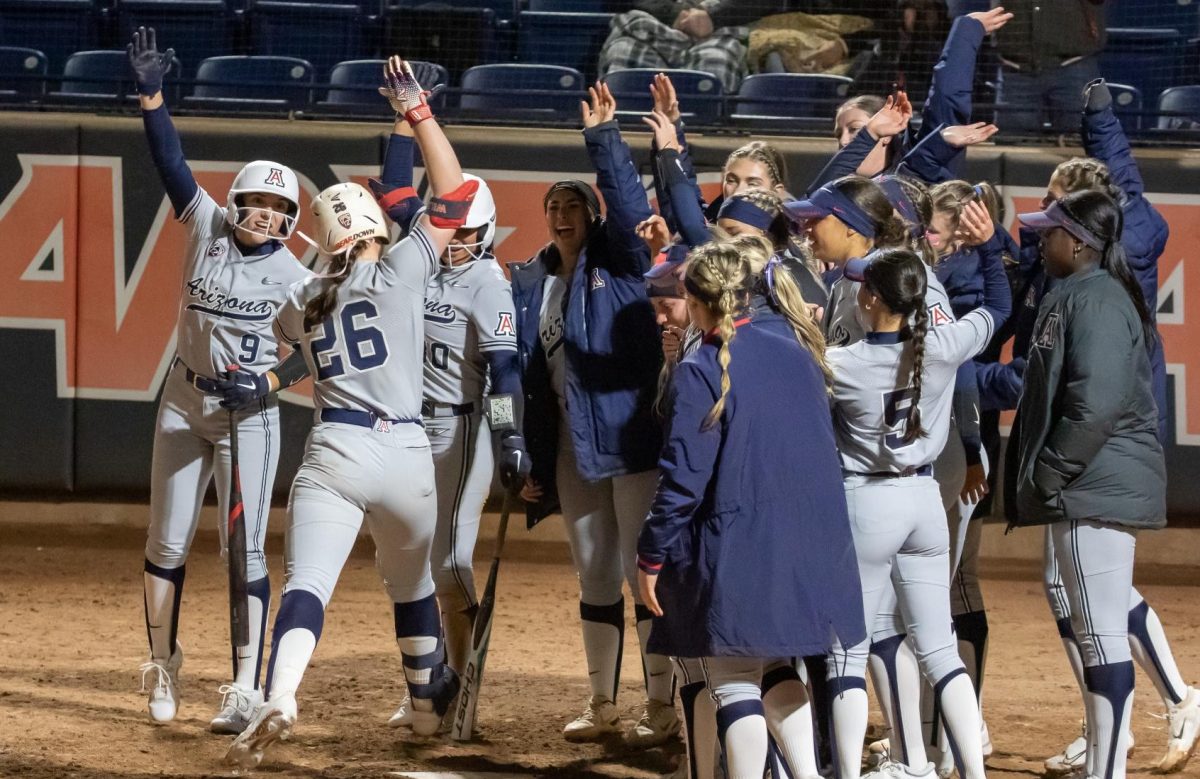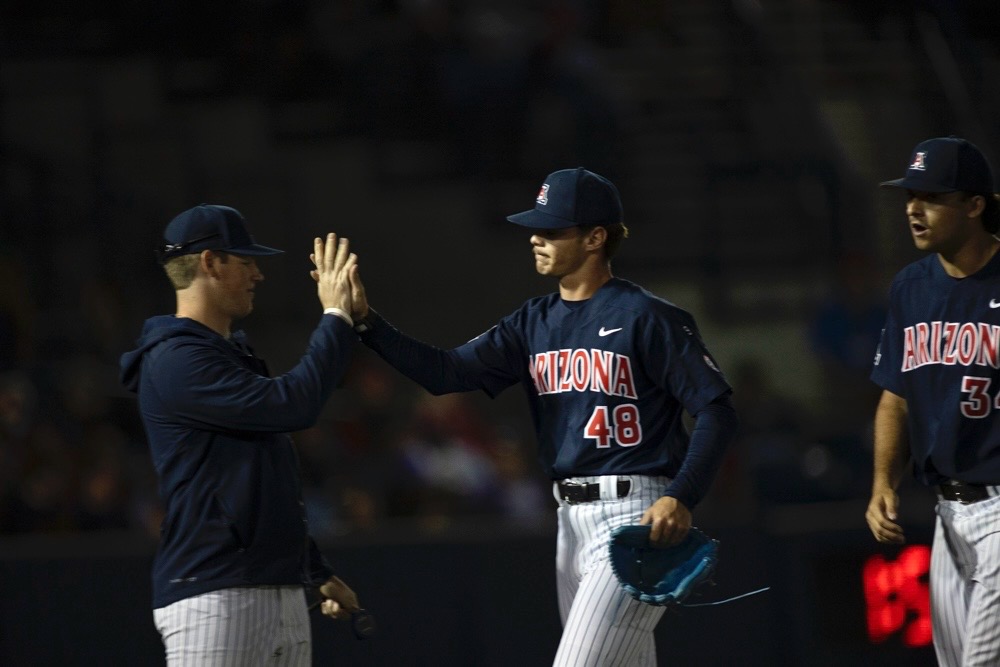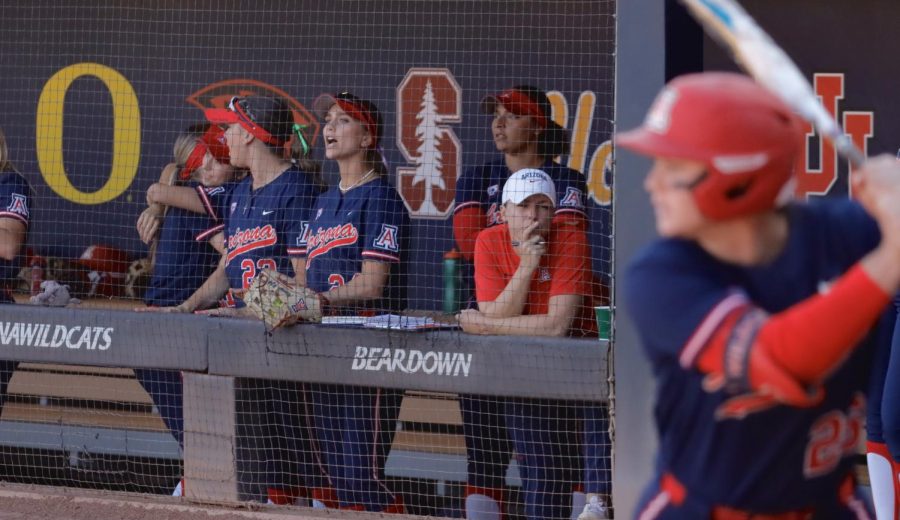If the self-imposed punishments withstand the NCAA review, the Arizona men’s basketball program won’t miss a bounce.
Recruits won’t care. Neither will season ticket holders.
Neither will you.
The UA wants to earn forgiveness by giving up one scholarship and a little recruiting time for pushing its limits way too far. Those preemptive self-sanctions are supposed to serve as punishment for financially aiding prospective recruits.
Lute Olson asked the Rebounders club — a group of UA boosters — for monetary donations to fund an AAU tournament held in McKale Center.
The Arizona Cactus Classic tournament, hosted in McKale Center from 2006 to 2008, received some of the $197,000 UA boosters donated to the event’s director Jim Storey, an entrepreneur who was, at the time, a publisher of popular fan site GOAZCATS.com.
The Web site primarily covers recruiting news and holds a database of information on prospective recruits.
Arizona Daily Star scribe Greg Hansen wrote Sunday that the UA basketball program integrated Storey as a powerful part of recruiting. The 150-page report detailing the allegations and the university’s investigation, obtained by the Daily Wildcat Monday, says “”over several years, Storey also developed relationships with members of the men’s basketball staff at the University, including the then-head and assistant coaches.””
In turn, Storey received many scoops and inside access to breaking news over the past two seasons. The university acknowledges that Storey “”was involved in promoting the institution’s athletics program.””
What a two years to have that access to breaking news.
“”The dissolution of a once-great basketball family took place for the simplest reasons: greed and the hunger for more,”” Hansen wrote, explaining how impactful Storey’s resources became to the program.
Sounds like a typical college basketball program weaving a loophole into the NCAA rules. Instead, Olson got caught.
Punishment? One scholarship in 2011-12.
Someone is bound to transfer by then. The rest don’t even notice.
Another punishment? Two years’ probation.
Strikes one and two. Don’t screw up again.
Asked if he thought the sanctions would affect recruiting, first-year UA head coach Sean Miller said “”No, not really,”” to reporters in Seattle on Thursday night.
Miller has been made well aware of the ongoing investigations of the infractions originally self-reported in 2008, even before he took the job.
It’s obvious that Miller, already spearheading a challenging rebuilding process without sanctions, believed that he could still do his job regardless of what unfolded.
Or else he wouldn’t have taken it. He almost didn’t in the first place.
Often, when an institution both self-reports and self-issues sanctions, the punishment can be much less severe than if the NCAA did so itself.
The USC men’s basketball team issued a ban on postseason play this season after determining that O.J. Mayo received improper benefits during his one season as a Trojan. USC also vacated that season’s wins.
Since the sanctions were announced mid-season and effective for this postseason, they did not affect immediate recruiting for Kevin O’Neill, who took the job anticipating a punishment for Tim Floyd’s missteps.
If the NCAA decides to add to the UA’s sanctions and issue a postseason ban on the 2011 NCAA Tournament when President Robert Shelton meets with a committee in April, who knows if that could stunt long-term growth of the program — never mind the obvious end to the UA’s coveted streak of 25 consecutive NCAA Tournament appearances.
Additional punishment should not be the case.
Vacating wins is an empty, cop-out punishment that the NCAA, for some reason, thinks erases history. Think Michigan fans forgot Chris Webber’s run to the 1992 Final Four? Or when UMass magically threw away its Final Four because of Marcus Camby? Or Memphis after Derrick Rose?
Most AAU teams — the real cash cows and shady businesses — cover most travel and lodging costs for their players. They’re powered by big shoe companies — tainting the players before they even reach the college level.
The Cactus Classic’s biggest asset came from its intangibles: The nation’s best high school players spent an entire weekend roaming the halls of McKale Center, using campus facilities and wowing over the beautiful weather and women.
The program technically couldn’t recruit during that time period, but the visit itself spoke well enough.
Just another speed camera catching someone going 75 in a 65 mph zone.
— Bryan Roy is an interdisciplinary studies junior. He can be reached at sports@wildcat.arizona.edu.








